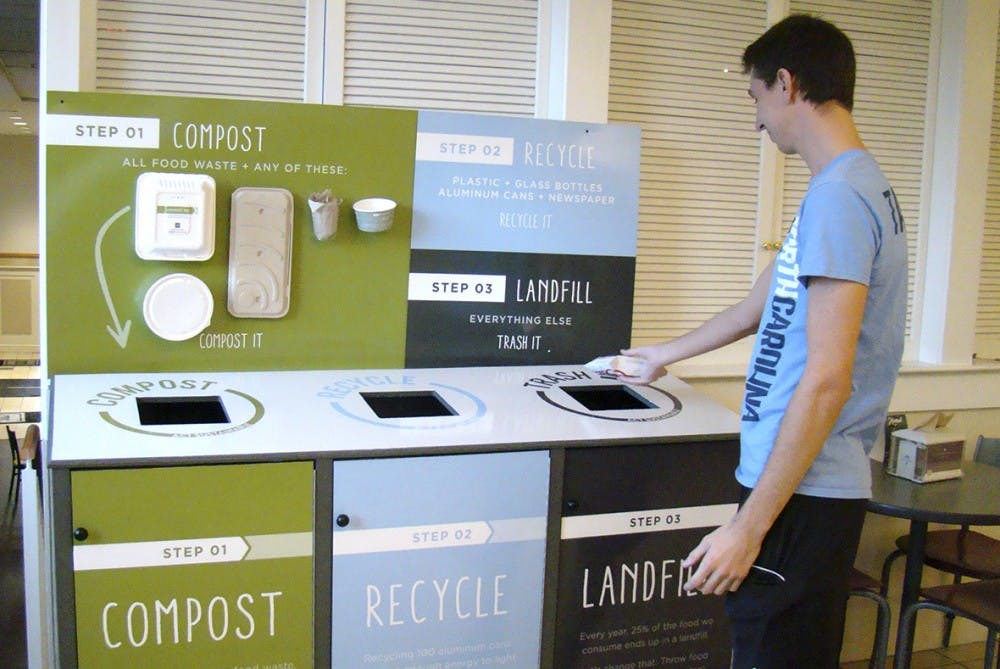According to UNC Waste Reduction and Recycling’s website, UNC has collectively composted more than 11 million pounds of food waste and compostable materials.
Composting allows unwanted garbage to become nutrient-rich soil, minimizing harmful emissions from landfills. Scott Myers, director of food and vending services, said composting at UNC has a relatively long history.
“It’s kind of a long-standing effort. It’s a long war, not an individual battle,” he said. “We started composting back during the 1999 Special Olympics, and have been doing it ever since in different degrees.”
He said reduction in compost is not always a bad thing.
“Last year, we actually had seen some reduction in the amount we have been composting,” Myers said. “But it’s a good thing because overall waste has been down.”
Myers said reasons for composting have changed since the start of the compost bins.
“A partnership at the Office of Waste Reduction and Recycling had started composting with Brooks Contracting in Goldston, North Carolina,” Myers said.
“They started off with a grant that made it inexpensive to compost, so it was a financial incentive to begin with.”




